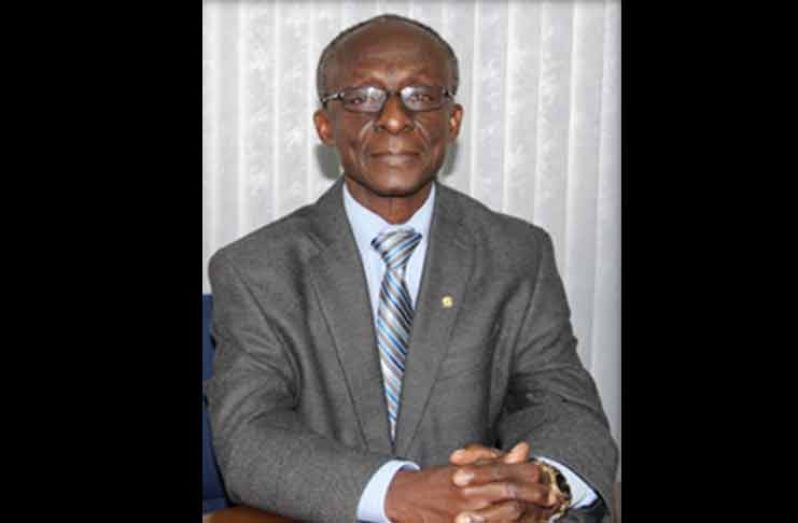CASES of malaria in Guyana have dropped dramatically in recent years, and PAHO-WHO country representative, Dr. William Adu-Krow says eradicating the disease altogether is very possible.
Dr Adu-Krow said the mosquito-borne disease is part of the continued push by PAHO-WHO to tackle the big three major communicable diseases in Guyana, the other two being the Human Immunodeficiency Virus (HIV) that can lead to AIDS, and tuberculosis.
In the case of malaria, Dr Adu-Krow told reporters on Monday: “We see Guyanese cases falling from 45,000 (infected) every year to a mere 11,000, so it gives me hope that we can actually eliminate malaria with time. Barbados has done it, so we should be able to.”
President David Granger, during his presentation at the Malaria Summit in London back in April, proposed a four-pronged international approach to tackling the disease that kills millions annually. Malaria remains one of the leading causes of death among communicable diseases in Guyana, therefore, the president said the country is committed to halving the number of malaria cases and deaths by the year 2023.
From the 2015 baseline of 8,329 cases, the Guyanese leader said significant national progress has been achieved in reducing the incidence of malaria. “The total number of new cases declined by 60 per cent between 2010 and 2015,” the president said while in London.
“Malaria, unfortunately, despite these gains, is highly resilient; a 5 per cent increase in new cases was recorded in 2016, and again in 2017,” he told world leaders.
The highest incidences of these cases, the Head of State informed the summit, were recorded in the forested areas of Guyana, where mining is the principal economic activity.
The president then proposed that the four-pronged international support strategy to combat the communicable disease be directed towards protecting citizens against the spread of malaria, by the transfer of technologies from developed to developing and poor countries.
Said he: “It involves preventing and limiting vector-borne infections by the dissemination of quality health information; it involves providing improved tools for diagnosing and identifying active cases, if malaria, regardless of species; and finally by procuring high-quality combination malaria treatment to ensure full cure of infected persons, and to avoid drug-resistant malaria.”
In the case of HIV, however, Dr Adu-Krow says the news is less encouraging, as while its prevalence had been decreasing to a low of 1900 people taking anti-retroviral therapy in 2006, recent data shows an increase in new cases.
“All of a sudden,” Dr Adu-Krow said, “new cases are rising, which means people are just tired about hearing of HIV, and they think it is no longer an issue. But it is still an issue, and we have to do something about it.”
Statistics provided by the Global Fund indicates that additional persons placed on anti-retroviral treatment for HIV have increased from 3800 in 2012 to 4800 in 2016.
With regard to tuberculosis, the PAHO representative says new cases are also on the rise from 270 in 2007 to 2210 in 2016. Dr. Adu-Krow indicated that this is also the most expensive of all the diseases, since the advent of multi-drug resistant strains.
“We are getting more and more people getting to what we call resistant TB. Those cases are very difficult to treat; and not only that, it costs about ten times more to treat those cases.”
Multi-drug-resistant TB cases develop when the bacteria that cause tuberculosis can withstand the effect of the drugs. This has become about due to infected people not taking the full complement of medication. The PAHO-WHO Country Office in Guyana continues to work closely with the Ministry of Public Health to control and eliminate the prevalence of communicable diseases.




.png)









